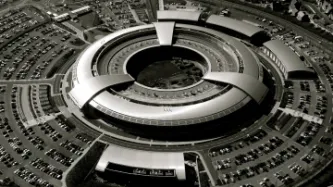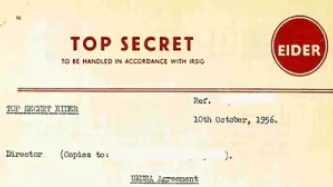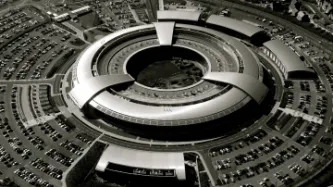Advanced Search
Content Type: Long Read
Many people imagine intelligence sharing to be a practice whereby men in trench coats silently slide manilla envelopes containing anonymous tip-offs or intelligence reports marked TOP SECRET across tables in smoke-filled rooms.
While such practices certainly exist, they represent only a tiny slice of intelligence sharing activities, and are vastly overshadowed by the massive exchange of bulk unanlysed (raw) intelligence data that takes place between the UK and its Five Eyes allies.…
Content Type: Long Read
Bad analogies about surveillance technology pervade newspaper reports, politicians’ speeches, and legal arguments. While it’s natural to want simple explanations to understand complex technology, it does us a disservice when governments, the media, or the courts mislead us through analogies that are inadequate. It is even worse if these analogies are used as a basis for policy change.
Privacy International’s legal challenge against GCHQ’s mass surveillance rests…
Content Type: News & Analysis
From Monday 14 to Friday 18 July, the British intelligence agencies and the Ministers responsible for them will be under the spotlight in an historic case to determine whether GCHQ's mass communications surveillance activities are a violation of Britain's human rights obligations.
Privacy International, along with Amnesty International, Liberty, the American Civil Liberties Union, Pakistani organisation Bytes for All and others, have brought the case before the Investigatory Powers Tribunal (…
Content Type: News & Analysis
Privacy International's partner organisation, Bytes for All, has filed a complaint against the Government, decrying the human rights violations inherent in such extensive surveillance and demonstrating how the UK's mass surveillance operations and its policies have a disproportionate impact on those who live outside the country.
Bytes for All, a Pakistan-based human rights organization, filed its complaint in the UK Investigatory Powers Tribunal (IPT), the same venue in which Privacy…
Content Type: Long Read
The recent revelations, made possible by NSA-whistleblower Edward Snowden, of the reach and scope of global surveillance practices have prompted a fundamental re- examination of the role of intelligence services in conducting coordinated cross-border surveillance.
The Five Eyes alliance of States – comprised of the United States National Security Agency (NSA), the United Kingdom’s Government Communications Headquarters (GCHQ), Canada’s Communications Security Establishment Canada (CSEC), the…
Content Type: Report
The recent revelations, made possible by NSA-whistleblower Edward Snowden, of the reach and scope of global surveillance practices have prompted a fundamental re-examination of the role of intelligence services in conducting coordinated cross-border surveillance.
The Five Eyes alliance of States – comprised of the United States National Security Agency (NSA), the United Kingdom’s Government Communications Headquarters (GCHQ), Canada’s Communications Security Establishment Canada (CSEC), the…
Content Type: News & Analysis
With the launch of the "Eyes Wide Open" project, Privacy International has put together a fact sheet about the secretive Five Eyes alliance. Consider this a guide to the secret surveillance alliance that has infiltrated every aspect of the modern global communications system.
Beginning in 1946, an alliance of five English-speaking countries (the US, the UK, Australia, Canada and New Zealand) developed a series of bilateral agreements over more than a decade that became known as the UKUSA…
Content Type: News & Analysis
The following excerpt is from a posting in the Guardian's Comment is Free by Carly Nyst, Privacy International's Head of International Advocacy.
"In order to challenge a secret surveillance system, and to demand the government explains why it is spying on British citizens, one must apply to a secret tribunal that does not make public its proceedings or the reasons for its decision. It may seem like an Orwellian fantasy, but this is the stark reality of the British legal system.
It's called…







